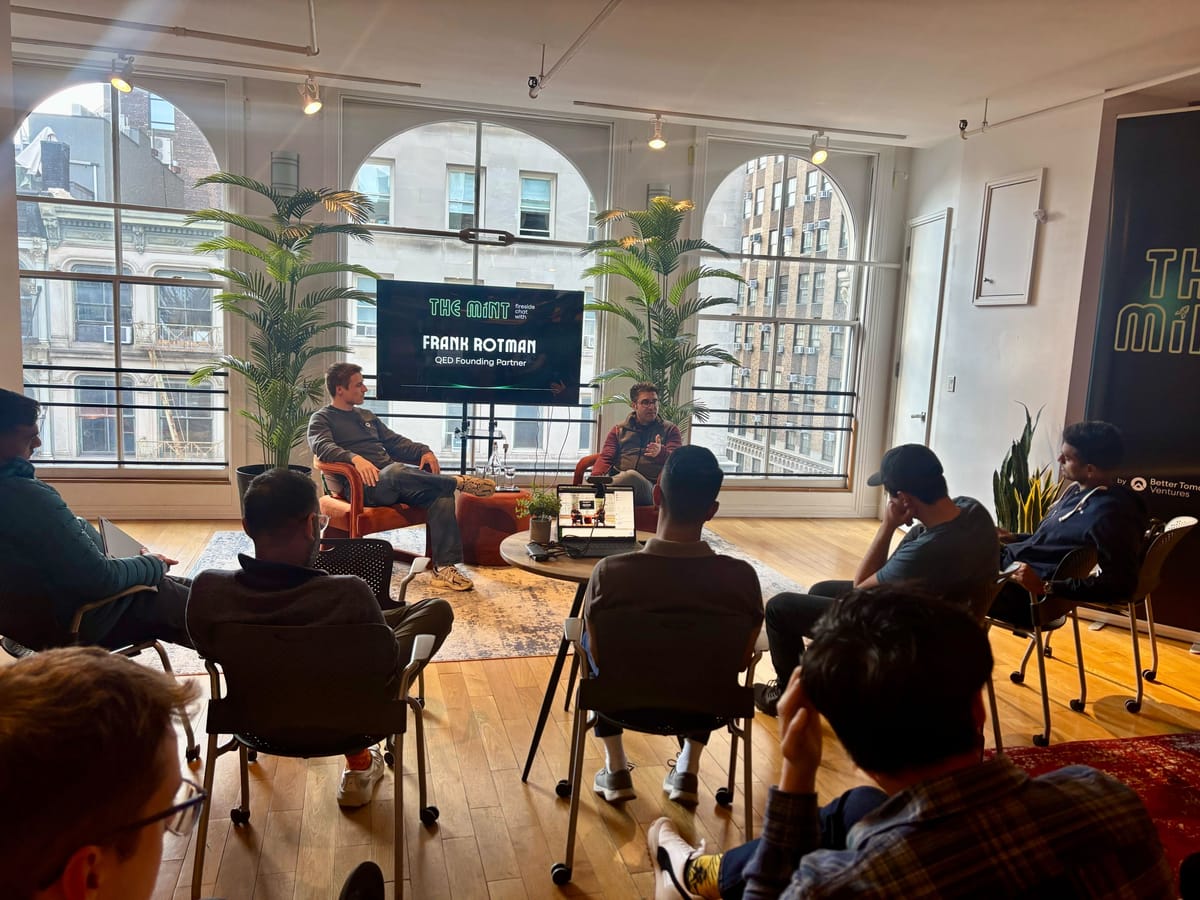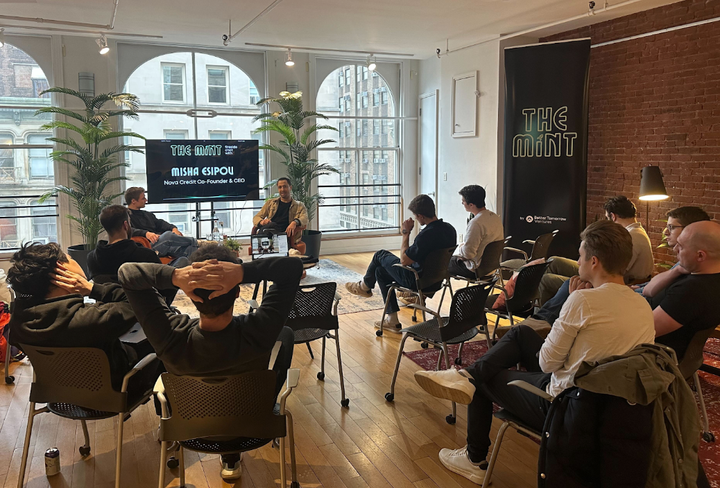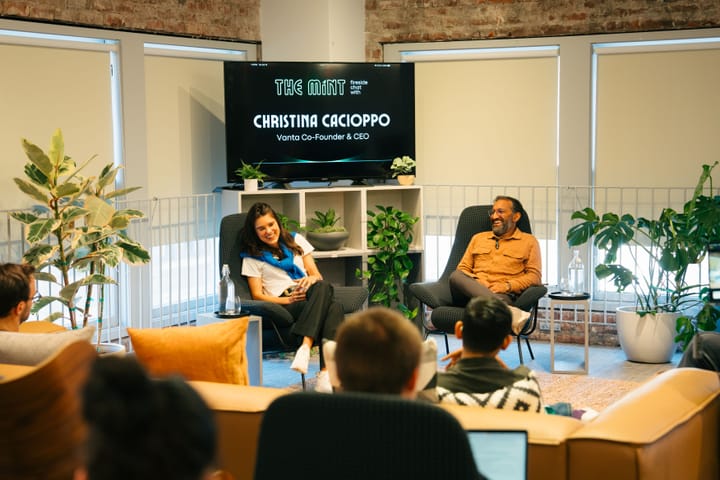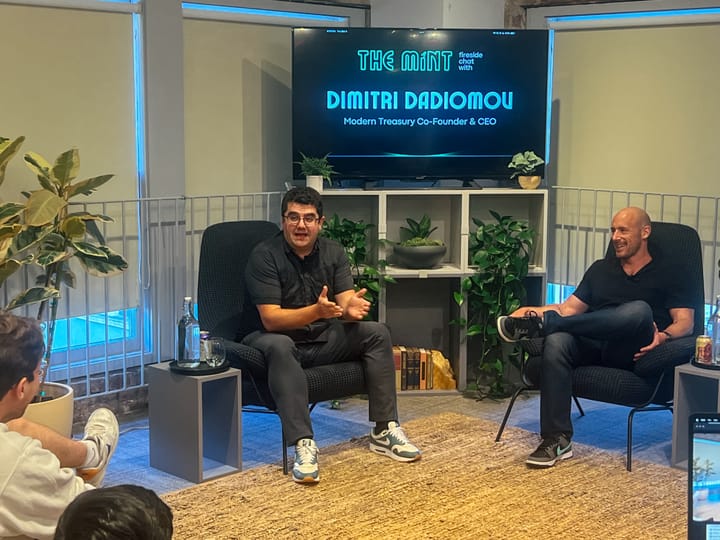The Mint Recap: Fireside Chat with Frank Rotman

We had the pleasure of hosting Frank Rotman as a special guest at The Mint last week.
Frank is a fintech OG. He’s spent the last 17 years investing in fintech, as one of the founding partners at QED. Before that, he was one of the early architects who helped create what became Capital One.
Frank shared valuable insights about building + investing in fintech over the last 30 years. Here are some key takeaways:
- Fall in love with your problem statement, not your solution statement.
- Don’t just solve a problem, build a business.
- Anything worth doing well is worth doing poorly first.
- Learn how to be comfortable with being wrong.
- Focus on what’s immediately critical.
Fall in love with your problem statement, not your solution statement.
The best founders understand they have ideas to solve problems but ultimately report to the problem statement. Founders who insist their solution is right while ignoring market feedback typically fail.
Don’t just solve a problem, build a business.
Founders shouldn’t just focus on solving problems; they should also aim to build a generational business in the process. From day one, it’s essential to understand the economic value exchange involved in solving the problem and ensure that customers are willing to pay for your product.
Anything worth doing well is worth doing poorly first.
Rather than waiting for perfection, start with a functional-and-imperfect version to validate demand and learn. You need to build something that works and is compliant, but don’t underestimate the need to prove that people will pay for and use it.
Think about it this way: if customers use an imperfect product, it's actually a strong signal of demand! You should be embarrassed about the first code you ship—if you’re not, you're not shipping fast enough.
Learn how to be comfortable with being wrong.
Founders need to surround themselves with people who are comfortable being wrong and fixing mistakes. You need an organization that understands mistakes will happen and can openly address them.
Don’t have pride of authorship—be ready to throw things out and fix them. Being uncomfortable with being wrong often paralyzes founders from making necessary decisions and slows down startup speed.
Focus on what’s immediately critical.
Startups need to focus on getting proof quickly enough to earn the right to raise more capital, rather than planting seeds as if they have all the time in the world.
He shared a great analogy, breaking survival into different modes
- Oxygen mode: You’ll die in 3 minutes — requires immediate attention and proof.
- Water mode: You’ll die in 3 days — addresses short-term critical needs.
- Food mode: You’ll die in 3 weeks — focused on longer-term planning.
His key point was that startups must understand which mode they’re in and act accordingly. The fatal mistake is operating in the wrong mode — like planting crops (food mode) when there’s a hole in the spaceship (oxygen mode).



